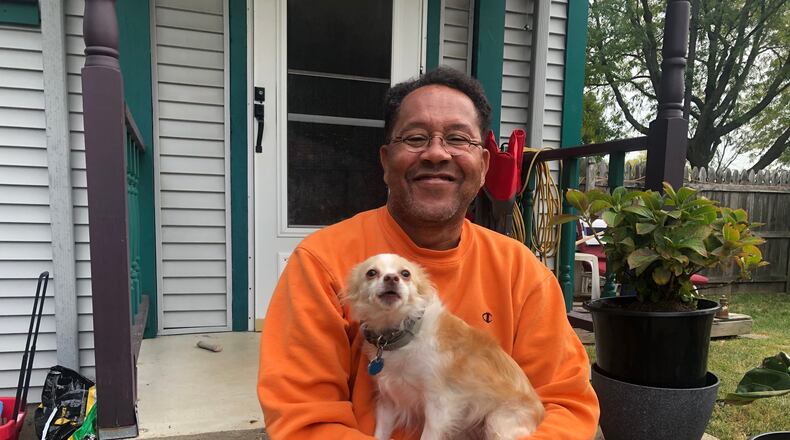Multiple people posted on social media that they are upset that the Army was allowed to use West Dayton as a “practice war zone” without neighbors getting a chance to provide input beforehand and get a say.
Some people questioned why this kind of training is taking place in a residential area, where they say the activities could negatively impact people with anxiety or PTSD.
Jeff Green, 61, who lives in the Wright Dunbar neighborhood, said some of the noises sounded like bombs going off and they scared his dogs.
“The dogs were pretty shook up,” he said. “I have a little dog, and she was pissed off, like ‘What the heck was that?'”
Other neighbors said they heard loud noises but they aren’t bothered by the training activities.
Earlier this month, the city of Dayton said soldiers would be taking part in military training exercises around the city between Sunday and Friday. The city has not identified the exact locations of the training.
The training is supposed to simulate urban environments that troops might encounter while deployed, the city said.
The city said the training was supposed to take place at “secured, predetermined locations,” and each session was expected to last a few hours, primarily in the early evenings.
The city warned that residents may hear sounds of helicopters, firing weapons and explosions as troops breach entryways.
“Safety precautions are in place to protect participants and residents, along with planning considerations to minimize impact to the community and private property,” the city said. “Dayton Police Department officers will be on-site to keep citizens safely away from training areas."
About 100 service members are involved in the training, and this is the first time in recent years the Army has done this type of training in Dayton, said Col. T.J. Rainsford, Army public affairs officer.
Different environments add realism, provide greater training value and increase the readiness of military personnel, Rainsford said.
“It is also a great opportunity to develop a strong relationship with Dayton law enforcement and first responders to share best practices,” he said.
Multiple people posted online that they were disappointed and frustrated that a residential neighborhood on the west side was being used by the military without first getting the permission of or feedback from residents.
Green questioned why training activities were taking place in West Dayton and not in other places, like Oakwood or Kettering. He said he wishes neighbors would have been consulted before the activities were approved.
Green said his long-haired Chihuahua, Squeak, was riled up by the sounds of explosions and helicopters flying overhead and she took some time to calm down.
Some people online said they worried about people with anxiety disorders and PTSD and survivors of events like the Oregon District mass shooting or gun violence.
Loud noises, especially things that sound like gunfire, can trigger people who have gone through traumatic experiences, said Ann Stevens, public information officer with Montgomery County Alcohol, Drug Addiction and Mental Health Services.
Ideally, people would receive prior notice of events that could trigger a stress response so they can avoid the situation or try to use other stress-reduction techniques, Stevens said.
“Even fireworks for the normal person when you are not expecting it will make you jump in your seat,” she said. “Think about if you have endured trauma, what that could do to you mentally and physically.”
Stevens said she understands that the military probably needs training in all sorts of environments, but it is important to be sensitive to the fact that some community members live with trauma and could find training exercises involving what sounds like gunfire difficult or painful.
Greg Smith, who also lives in Wright Dunbar, said he heard a few very loud booms on Tuesday that sounded like dynamite detonating.
But Smith said he sleeps like a rock and he wasn’t bothered by the training.
He said this is at least the second time since he’s lived in Wright Dunbar that military training activities were hosted nearby. He moved in back in 1999.
Smith said residents received notices about the training and he’s OK with it taking place.
“The military is here to protect us,” he said. “I don’t have any problems with this.”
“I can only speak for me, but it didn’t bother me,” he said.
He said he thinks they chose to do the training in Dayton likely because of its proximity to the Wright-Patterson Air Force Base.
About the Author


